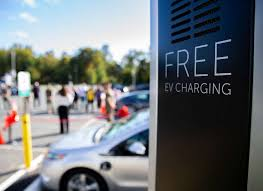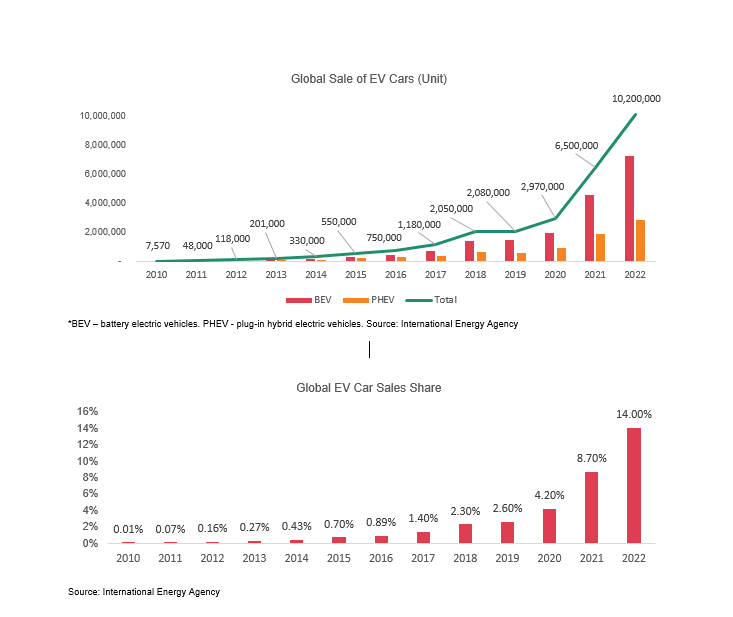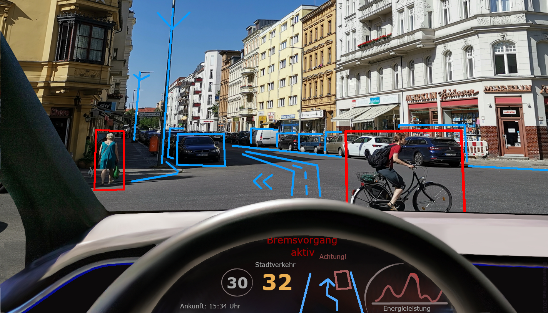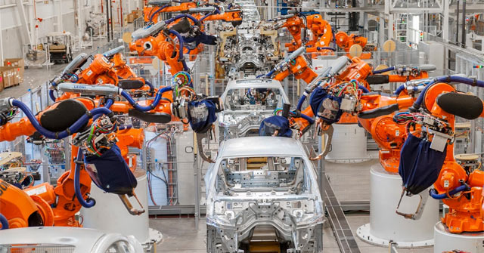Automotive & Transportation
The automotive and transportation industry is a rapidly evolving sector that encompasses all the companies and activities involved in manufacturing, designing, developing, marketing, and selling motor vehicles. The automotive industry can be further broken down into sub-industries such as passenger cars, commercial vehicles including light and heavy vehicles, buses, recreational vehicles, specialty vehicles, and sports utility vehicles. The transportation industry can further broken down into sub-industries such as air freight and logistics, airlines, marine, railroads, airport services, highways and rail tracks, and marine ports and services.

The automotive and transportation industry has witnessed a significant transformation due to emerging technologies, evolving business models, customer preferences, and environmental regulations. The progression of autonomous vehicles and fleets, the use of data from connected vehicles, car-sharing programs, alternative transport-on-demand initiatives, and the paradigm industry shift toward electric vehicles are some of the major trends driving the industry growth.
A Shift towards Sustainable Mobility

Growing popularity of EVs due to their low running costs, environmental friendliness, and impressive fuel efficiency is projected to boost automotive industry growth. According to the International Energy Agency (IEA), electric car sales exceeded 10 million units in 2022. In 2022, the electric car sales accounted for a total of 14% of all the new cars sold compared to 9% in 2021 and 5% in 2020. In 2022, Tesla, which is one of the leading players in the EV car market, delivered over 1.3 million cars, compared to 936K cars in 2021.
Moreover, according to the IEA, over 26 million electric cars were on the road in 2022, accounting for a growth of about 60% compared to 2021. This robust shift in the adoption of electric cars has resulted from various factors including increased consumer interest, government policies, electrification of the global transport industry, and declining cost of lithium-ion batteries.
Furthermore, there has been an increasing push toward electric commercial vehicles, including vans, trucks, semi-trucks as well as, all-electric airplanes and electric ships. For instance, in August 2023, Amazon announced that it would acquire 1,000 electric trucks from Eicher Motors, signaling a major shift towards eco-friendly deliveries. In another instance, in March 2022, the United States Postal Service (USPS) announced that it placed its first order with Oshkosh, accounting for 50,000 vehicles, of which 10,019 are battery electric vehicles (BEVs). Thus, there’s a substantial shift in the transportation sector as well for the adoption of EVs.

Recent Trends in Autonomous Technology
Autonomous vehicles are expected to bring safer roads, less traffic congestion, and more efficient operation. There have been several developments in autonomous technology in recent years. For instance, in March 2021, Honda launched the Honda SENSING Elite with the traffic jam pilot function, which qualified for Level 3 automated driving technology. Furthermore, in December 2022, Honda unveiled the next-generation technologies of the Honda SENSING 360 and Honda SENSING Elite. In January 2023, Mercedes‑Benz became the first automaker to introduce an SAE Level 3 system for use on public roads in the USA.

Increasing Automation in the Automotive Industry
According to the International Federation of Robotics the adoption of robotics in the automotive industry has increased significantly with an all-time high sales in 2022 where 136,130 units of robots installed in the automotive industry, experiencing a growth of 16% compared to 2021. Furthermore, in 2022, in the USA, the robot installations for the automotive industry increased by 47% to 14,472 robots in comparison to 9,854 robots in 2021.

The robot density is also one of the key indicators to represent the adoption of robots in the automotive industry. According to the International Federation of Robotics, South Korea led in robot density globally with 2,867 industrial robots per 10,000 employees in automotive manufacturing in 2021. Germany ranked in second place with 1,500 units followed by the USA accounting for 1,457 units and Japan with 1,422 units per 10,000 workers. It is anticipated that the adoption of robotics in the automotive industry will grow at a significant rate thereby increasing the automotive production and the overall automotive industry growth.

A Shift from Offshoring to Nearshoring
The automotive industry involves a highly complex global supply chain with the production of several components offshoring in different countries. In recent years, there has been an increasing shift from offshoring to nearshoring. During the COVID-19 pandemic, automotive companies realized the vulnerabilities of their supply chains, and that led to an increasing shift towards localization of the automotive supply chains.

According to the Mexican government data, in 2022, around 70 plants in the automotive sector relocated their manufacturing operations to Mexico. For instance, in March 2023, Tesla announced that its new facility would be built in the Mexican state of Nuevo León. Likewise, Audi and BMW already have similar manufacturing plants in Mexico. In February 2023, BMW announced that it would invest about EUR 800 million (USD 866 million) in the central Mexican state of San Luis Potosi to produce high-voltage batteries and fully electric “Neue Klasse” models. Thus, an increasing trend of nearshoring is changing the market dynamics of the automobile industry.
Increasing Adoption of Mobility As a Service (MaaS)

Mobility as a Service (MaaS) is a system that integrates different modes of transportation such as public transit, bike-sharing, ride-hailing, car-sharing, and more, into a single digital platform, enabling users to effortlessly plan, book, and pay for their travels. The growing need for more sustainable and efficient transportation solutions is driving the demand for MaaS.
In recent years, MaaS has gained significant momentum globally. In August 2023, Hitachi launched the 360Pass app called GoGoGe, which connects all of Genoa’s public transport infrastructure in a MaaS ecosystem. In another instance, in July 2023, Transport for West Midlands (TfWM), an organization that manages transportation systems in the Northwest of England, appointed FOD Mobility Group to help design, develop, and deliver a new wide-ranging MaaS app using its Mobilleo MaaS platform. In another instance, in December 2022, Moovit (USA) launched a MaaS pilot in Tampa (USA) in association with the Mobility Department of Tampa. Thus, owing to the growing need for more sustainable and efficient transportation solutions, there’s a significant uptick in the adoption of MaaS.
Intent Market Research has ability to predict disruption in automotive & transportation industry and can provide insights on how to respond to specific industry trends to gain first mover advantage.

